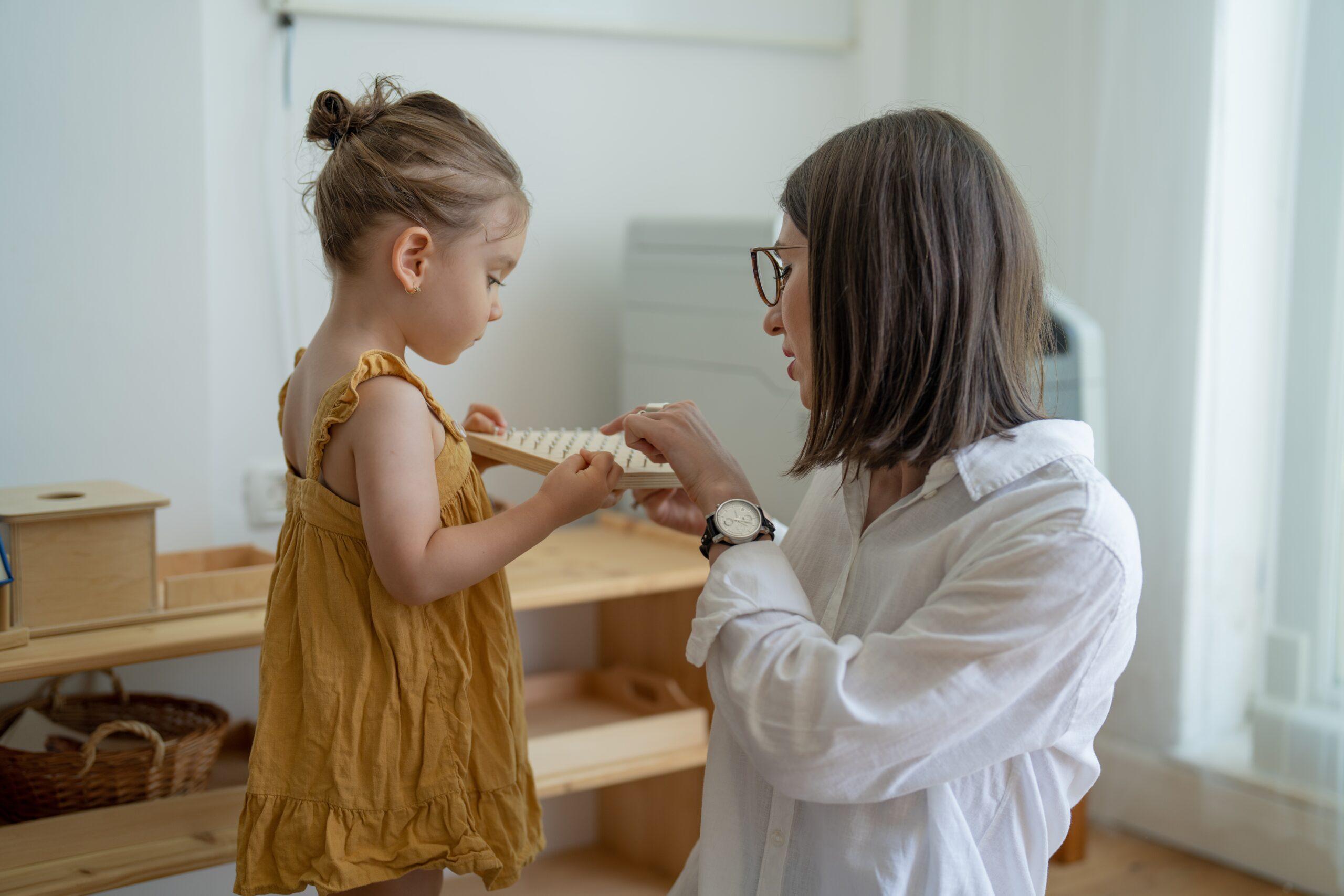Children come into this world with a brain wired to learn an astounding number of things throughout the entire course of their lives. Filled with an ardent curiosity and an intrepid sense of exploration, children are natural learners.
Left to explore on their own, in a safe and nurturing environment, children often teach themselves myriad complex operations and concepts, such as size, amount, sameness, difference, shape, order, relationship, function, laws of cause and effect, texture, sound and mastery of a task through repetition.
When children are encouraged to learn— led by their interests and given materials suited for their developmental stage— they generally learn with great success, profound joy and an immense sense of accomplishment.
Sometimes, however, daycare centers, preschools and kindergartens adopt a daily routine to efficiently control children in the classroom. While it may curb behavior problems, rigidity can stifle opportunities for spontaneous and joyful learning, and dull a child’s natural creativity and open-eyed wonder at exploring and interacting with the world.
If you want to succeed at raising children who think of learning as a pleasure, not a chore, you must provide your kids with an environment at home that fosters their innate tendencies to investigate and interact with different experiences.
Here are ideas to inspire your little angels to develop a lifelong love of learning.
- Model an interest in education. Read books, go to museums, enjoy music, take classes and talk about what you have learned. If your children see you enjoying new things, they will want to do the same.
- Surround your kids with things that capture their attention and fuel their curiosity. A vibrantly colored shape sorter, a talking storybook or set of art supplies invites a child to dive in and see what he or she can do or create. As children play with such items, they learn.
- Provide toys that coincide with your child’s interests. Does your daughter love to chase butterflies in the yard? Then buy her a net, a butterfly book and a collection kit. Does your son like to mimic Daddy in his workshop? Invest in a child-sized and safe set of tools. Children immerse themselves in the things they love. The deeper the immersion, the greater the joy and opportunity for learning.
- Ask the right questions in the right way. If your child says, “Mommy, I wonder what will happen if I roll my ball down the slide?” reply with, “What do you think will happen? Let’s try it and find out!” This encourages learning by doing and finding answers through active participation, instead of just passively receiving and storing information.
- Back off, most of the time. Don’t over help, be overly critical or be quick to rescue a failed attempt at something. Let your child learn through repetition and trying alternate solutions. Too much helpfulness undermines a child’s confidence and stifles spontaneity.
- Have a slogan. Consider the phrase: Silliness is allowed and fun is fantastic! Encourage music, dancing, finger painting, puppet shows, impromptu skits, games of tag and water balloon fights, when appropriate. Like adults, kids hate a shoulder-to-the-grindstone routine. They learn and enjoy the process most when they are happily engaged in the task at hand. Let kids be kids and have fun while they learn.
- Focus on the process, not the end result. You aren’t training a puppy to sit, shake and roll over. You are inspiring a soul and motivating a little human being to learn. Don’t cheapen the process by offering a reward for accomplishing a task, or show disappointment or lack of approval if your child falls short of your predetermined mark. This only creates stress, which is counterproductive to learning, and makes learning feel like work. Instead, show delight in your children’s accomplishments. Point out their strengths. Encourage your children to keep trying. Be lavish with your praise.




